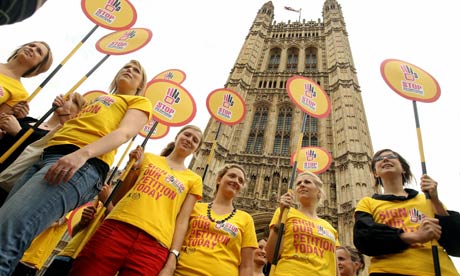Authorities launch drive to boost conviction rate as China is revealed to be one of the main sources of trafficked people

Prosecutors have responded to criticism they are securing too few convictions for human trafficking by making a plea to victims to come forward and testify against their traffickers.
The director of public prosecutions, Kier Starmer, launched a draft policy on prosecuting a crime he described as "modern-day slavery" in a bid to increase the number of prosecutions for trafficking in England and Wales. Last year 102 people were prosecuted for sex trafficking and another 19 for labour trafficking.
The move comes as the Crown Prosecution Service announced a growing problem of trafficking into Britain from Nigeria, Vietnam and China, which are believed to be the major source of victims, after many years in which eastern Europe had that status. In particular young women and girls are being trafficked from Nigeria to work as prostitutes, while boys and young men from Vietnam are being used in cannabis farms located in converted homes in residential areas across Britain. Victims of both sex are being trafficked from China into prostitution and forced labour such as domestic slavery, the CPS said.
"It is important that those who help victims understand our role in dealing with human trafficking cases," said Starmer. "This new public policy will be the go-to guide on the prosecution process for support groups … and help them give informed advice to victims, which we hope will ultimately lead more victims supporting prosecutions. Combating human trafficking is a high priority for the CPS and the criminal justice system – we are committed to tackling and disrupting this modern form of slavery."
Campaigners for trafficking victims have been critical of the authorities' response to the crime.
"Over recent years the government has woefully underperformed in securing convictions for human trafficking," said Christine Beddoe, director of Ecpat UK. "There is no incentive for victims to come forward because of the lack of protection. Even recent efforts to improve the identification of victims through a national referral mechanism are being undermined by the Home Office's insistence on seeing too many of these exploited and vulnerable individuals as immigration offenders."
Victims are often reluctant to come forward because they fear retribution against themselves or their families back home and because they distrust the police, especially if they are from a country which suffers from a corrupt law enforcement system.
The CPS wants victims to know they will be protected through the prosecution process and to encourage them to come forward with vital evidence against the person or gang that exploited them in order to secure a conviction.
The draft policy states that victims can be screened from the defendant in court, public galleries can be cleared and the victim can give evidence through a TV link, even from abroad if they have returned to their home country.
Successfully prosecutions have proved difficult in recent years, partly because prosecutors must present juries with evidence that the suspected trafficker recruited the victim and moved them, which often requires evidence from the home country; that the victim has been forced into exploitation; and of the exploitation itself. To show all these, the victim's own evidence is a key starting point for investigators.
The CPS wants charities and support groups who assist victims of trafficking to explain to them how the prosecution system in the UK will protect them if they come forward, and is calling on agencies such as the Health and Safety Executive, the department of work and pensions and the UK Border Agency which come across trafficking victims to do the same.


No comments:
Post a Comment